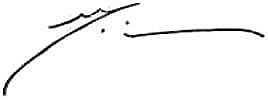|
VI
L'état de transe, ou de samâdhi, est-il un signe de progrès ?
Entrer en samâdhi, c'est passer dans un état dont il ne reste
aucun souvenir conscient quand on se réveille.
Dans l'ancien temps, c'était considéré comme une condition
très supérieure. On pensait même que c'était le signe d'une
grande réalisation — les gens qui voulaient faire le yoga ou la
sâdhanâ, essayaient toujours d'entrer dans un état comme celui-là. On a dit toutes sortes de choses merveilleuses de cet état-là
— on peut en dire tout ce que l'on veut, puisque, justement, on
ne se souvient pas et que les gens qui y sont entrés sont incapables
de dire ce qui leur est arrivé !
J'avais lu, dans toutes sortes de littératures soi-disant spirituelles, des choses merveilleuses sur cet état de transe ou de
samâdhi; et il se trouvait que je ne l'avais jamais eu. Alors je
ne savais pas si c'était un signe d'infériorité. Et quand je suis
arrivée ici, une de mes premières questions à Sri Aurobindo a été:
"Que pensez-vous du samâdhi, de cet état de transe dont on ne
se souvient pas ? On entre dans une condition qui paraît être
béatifique, mais quand on en sort, on ne sait pas du tout ce qui est
arrivé." Alors il m'a regardée, il a vu ce que je voulais dire et il
m'a dit : "C'est de l'inconscience." Je lui ai demandé une explication, je lui ai dit : "Quoi !" Il m'a dit : "Oui, vous entrez dans
ce que l'on appelle samâdhi, quand vous sortez de votre être
conscient et que vous entrez dans une partie de votre être qui
est complètement inconsciente, ou, plutôt, dans un domaine où
vous n'avez aucune conscience correspondante—vous dépassez
le champ de votre conscience et vous entrez dans une région où
vous n'avez plus de conscience. Vous êtes dans l'état impersonnel.
C'est-à-dire un état où vous êtes inconscient ; et c'est pour cela
que, naturellement, vous ne vous souvenez de rien, parce que
vous n'avez été conscient de rien." 1. Alors cela m'a rassurée et
1 Au moment de la publication de cet Entretien, la Mère a ajouté la remarque suivante:
"Il y a aussi des gens qui entrent dans des domaines où ils ont une conscience, mais entre cet état conscient et leur conscience normale de veille, il y a un vide : leur individualité
n'existe pas entre l'état de veille et cet état profond; alors, au passage, ils oublient. Ils
ne peuvent pas transporter la conscience qu'ils avaient là, dans cette conscience-ci, parce
qu'il y a un vide entre les deux.
Il y a même une discipline occulte qui consiste à se construire des champs intermédiaires, pour pouvoir se rappeler des choses."
|
and I told him, "well, the thing never happened to me"; he replied
"to me also it did not !" (laughter)
From that moment, when people speak of Samadhi, I tell them,
"Well, try to develop your inner individuality and you can enter
into these very regions in full consciousness, with the delight of
communion with the highest regions without losing consciousness
for that and returning with a zero instead of an experience".
So you have the reply. The sign of progress is when there is
no more unconsciousness, when you can rise to the same regions
without entering into a trance.
(silence)
But there is a confusion in the words.
When you leave one part of your being (for example, when
you enter fully conscious into the vital world), your body, body
alone may go into trance, but it is not samādhi. It is rather what one
calls a lethargic or cataleptic state. When it is at its maximum, it
is a cataleptic state, because the part of the being which animates
the body has gone out of it, then the body is half dead, that is to
say, its life is diminished to that extent and its functions are almost
abolished : the heart is slowed down and is hardly felt, the respiration hardly perceptible. It is this which is the true trance. But you
yourself during the time are fully conscious in the vital world.
And even, by a discipline which is besides neither easy nor without
danger, you can see that the body remains conscious independently
with the minimum of forces that you leave in it. By a wholly methodical
training, you can make the body keep its autonomy of movement even when you have totally exteriorised yourself. Thus in a
state of almost complete trance, you can speak and narrate what is
seen and done by the exteriorised part. It can be only when you are
sufficiently advanced on the way.
There are examples, spontaneous and involuntary, of a state
which is not altogether this but something analogous : such are
the states of somnambulism. That is to say when you are in deep
sleep, when you have gone out of your body and when the body
|














